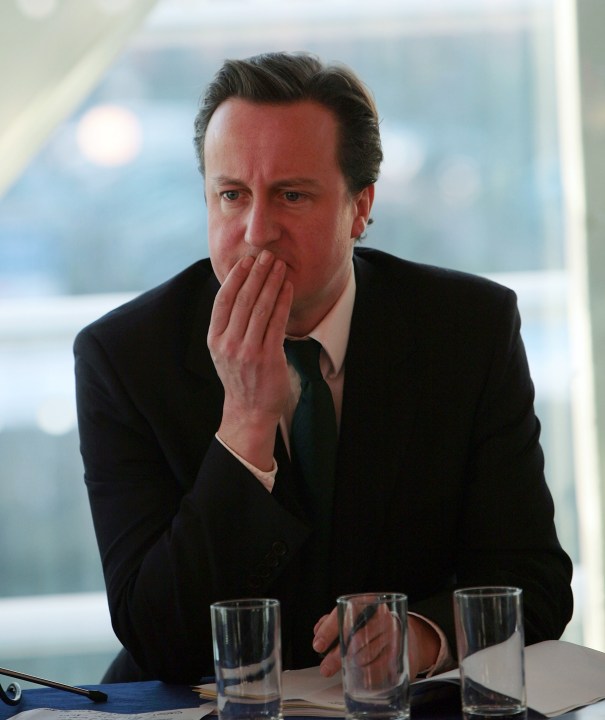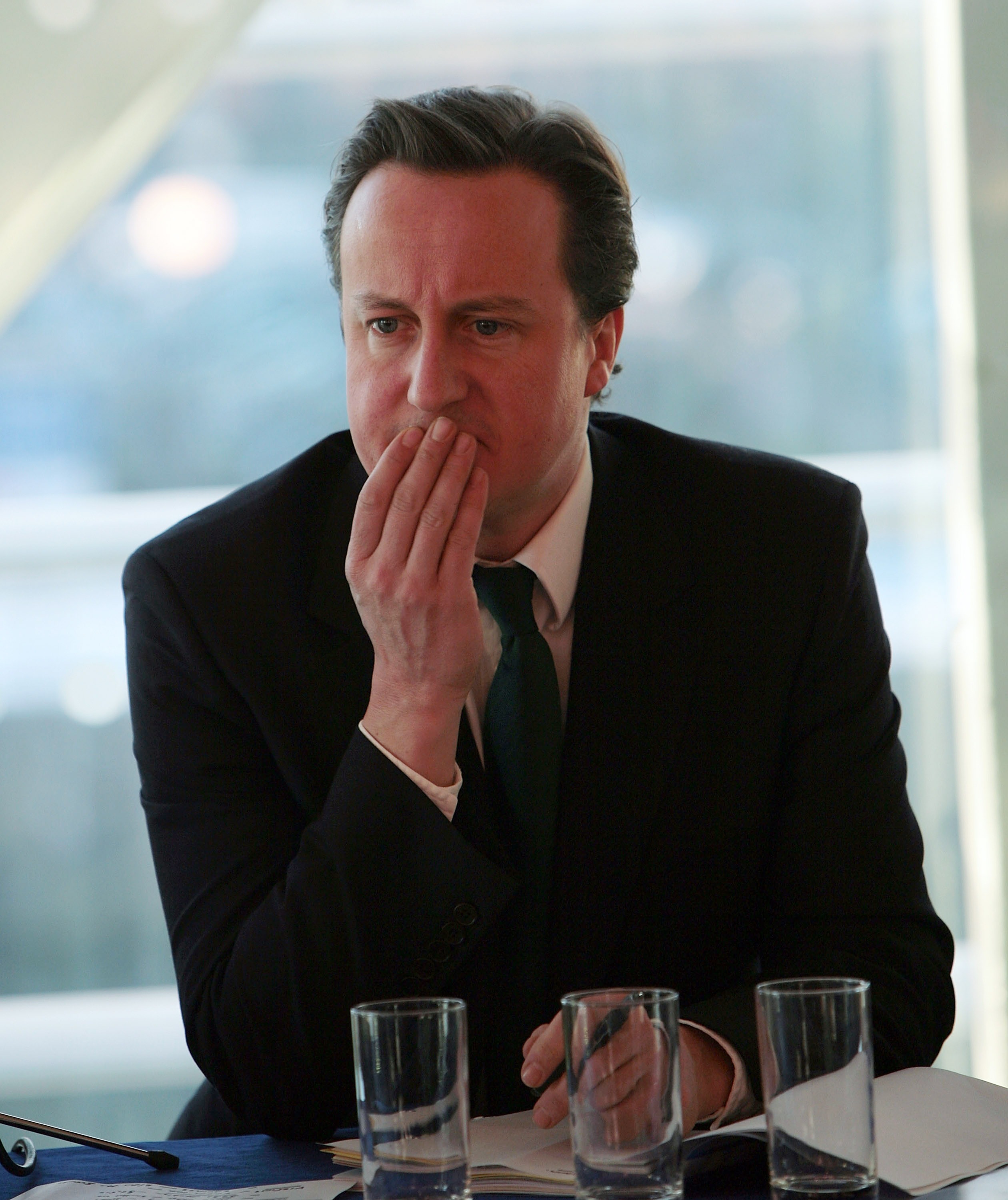 So just how sorry is David Cameron? On Friday he put his hands up to being part of a “cosy consensus” on tax and spending. So I had expected his press conference today to declare he’d torn up his plans to outspend what he inherits from Labour. All bets are off, I expected him to say, it’s time for clean slate, and the Tories can make no promises on spending until they see the government books – i.e. real spending cuts aren’t ruled out. But nope – his original position still stands: that the only question in his mind is the rate of increase in spending. But it will increase. And so, ergo, will debt.
So just how sorry is David Cameron? On Friday he put his hands up to being part of a “cosy consensus” on tax and spending. So I had expected his press conference today to declare he’d torn up his plans to outspend what he inherits from Labour. All bets are off, I expected him to say, it’s time for clean slate, and the Tories can make no promises on spending until they see the government books – i.e. real spending cuts aren’t ruled out. But nope – his original position still stands: that the only question in his mind is the rate of increase in spending. But it will increase. And so, ergo, will debt.
So how can Cameron claim to be “solving Labour’s debt crisis” while proposing to massively increase public debt – which he would do, even by freezing spending in real terms? I asked him this in the press conference this morning. Cameron replied that hasn’t given details on his plans. But even if he implements a freeze, then debt (even excluding the banks) would rise from £730bn the year before the election (2009-10) to £960bn in 2013-14. By no stretch of the English language is this “solving a debt crisis”. Unkind souls might call it a “cosy consensus” – this idea that spending has to keep rising, even when tax revenues collapse. And that the public prefer higher spending to being saddled with debt.
The below graph puts forward the maximum possible difference between the parties on debt, excluding financials, under Cameron’s “no cuts” policy, assuming zero real terms spending growth. And when you consider that Cameron has promised more money to health, education, defence, international aid etc the difference will be even more narrow. My point: that Cameron had best be careful. He cannot allow a Brown-sized gulf to open between his rhetoric and his figures. He need to be entirely honest with the public, and if he doesn’t feel he can reduce debt until a second term he should not give any impression to the contrary.









Comments